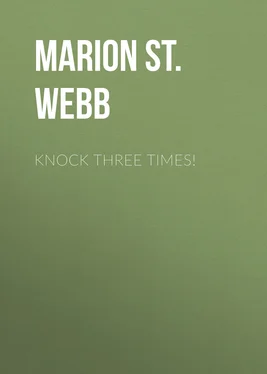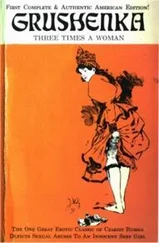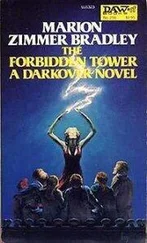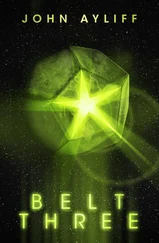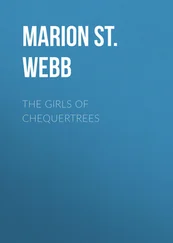Marion St. John Webb - Knock Three Times!
Здесь есть возможность читать онлайн «Marion St. John Webb - Knock Three Times!» — ознакомительный отрывок электронной книги совершенно бесплатно, а после прочтения отрывка купить полную версию. В некоторых случаях можно слушать аудио, скачать через торрент в формате fb2 и присутствует краткое содержание. Жанр: foreign_children, foreign_antique, foreign_prose, на английском языке. Описание произведения, (предисловие) а так же отзывы посетителей доступны на портале библиотеки ЛибКат.
- Название:Knock Three Times!
- Автор:
- Жанр:
- Год:неизвестен
- ISBN:нет данных
- Рейтинг книги:3 / 5. Голосов: 1
-
Избранное:Добавить в избранное
- Отзывы:
-
Ваша оценка:
- 60
- 1
- 2
- 3
- 4
- 5
Knock Three Times!: краткое содержание, описание и аннотация
Предлагаем к чтению аннотацию, описание, краткое содержание или предисловие (зависит от того, что написал сам автор книги «Knock Three Times!»). Если вы не нашли необходимую информацию о книге — напишите в комментариях, мы постараемся отыскать её.
Knock Three Times! — читать онлайн ознакомительный отрывок
Ниже представлен текст книги, разбитый по страницам. Система сохранения места последней прочитанной страницы, позволяет с удобством читать онлайн бесплатно книгу «Knock Three Times!», без необходимости каждый раз заново искать на чём Вы остановились. Поставьте закладку, и сможете в любой момент перейти на страницу, на которой закончили чтение.
Интервал:
Закладка:
“The Pumpkin must have rolled across without the floor giving way—but then, it—he—I mean, what shall we do, Jack?”
“Shall we try?” suggested Jack.
Molly hesitated. Then “Yes, let’s,” she said. “Only—shall we?” she faltered.
“You stay here while I go across and knock three times on the other door,” said Jack, at once decided. “Then while it’s light you run across.”
“Oh, Jack, do be careful,” cried Molly.
For Jack had already started. He felt with his foot for the thickest branch and stepped recklessly forward. To his delight he found that it was quite easy to walk across, and all their fears had been groundless.
“Why, Moll,” he called joyfully, “it’s as easy as anything. Wait a sec. I’m almost there.”
He reached the clay step on the other side and gave three good knocks to relieve his feelings. With a low creaking the door opened slowly, and as the light streamed in Molly ran quickly and easily across, and the next moment they both stood outside the tree, and the door was shut.
CHAPTER III
The Other Side of the Tree
THE two children gazed in astonishment at the unfamiliar scene in front of them, for here was a place they had never seen before, and yet, apparently, a place within ten minutes’ walk of their home—a place that led out of the little wood at the end of their garden. And they thought they knew every nook and corner of that wood, and of the fields and lanes beyond for several miles round their house. Yet here was a place they had never seen before; and, more puzzling still, the soft glow of evening and sunset had taken the place of the moonlight and gloom which had been all around them in the wood. For they were still standing close to the same big old tree, but instead of the wood continuing for a quarter of a mile on, and ending at the edge of Farmer Hart’s cornfields as it always had done, it ended abruptly right in front of them, by the side of a broad white road. This road stretched away to the left, up and up a big hill. You could see it winding like a white ribbon, bordered by the green and brown trees of the woods that clustered on each side. And, at the top of the hill, where the road ended, glistened the white walls and roofs of a distant city. To the right the road continued past the wood where the children were standing, and sloped down, down, till it was lost to sight in the burning crimson and gold afterglow of the sunset.
Jack and Molly looked up the road and down the road, but all was silent, and not a soul in sight. Then a wisp of blue smoke among the trees on the opposite side of the road caught their attention, and they saw that it was curling from the chimney of a snug little red-roofed cottage, which nestled, half hidden, on the fringe of the wood across the road.
The children looked at each other in bewilderment. Then they turned and examined the giant tree behind them, but that did not help them much. It was certainly the same tree, but it was not the same wood. Something queer had happened—it did not seem to be even the same country. They looked up and down the road again, and behind them and before them—and listened. But all was silent. Their eyes wandered back to the curling blue smoke, the only sign of life within sight.
“Better ask some one where we’ve got to,” said Jack, eyeing the smoke.
“But where’s IT gone?” began Molly, then broke off quickly. “Hush! What’s that!” she said.
She plucked Jack’s sleeve and drew him into the shadow of the trees. A distant sound of voices came floating through the still evening air. There were evidently two speakers, for, as the sounds drew nearer the children could hear a high, loud, jolly voice, flowing continuously, and punctuated every now and then by a low, mumbling voice. After a few seconds the words of the high-voiced speaker became distinguishable.
“Stuff and nonsense!” it cried shrilly. “Pull yourself together, Father. Come now, come now, snap your fingers in its face! Laugh at it, I say, and—tss–” The speaker made a little hissing noise. “Where is it?”
The other voice here murmured some reply too low for the children to catch.
“What’s that?” replied the first speaker. “No—not you . But I’ll tell you what will happen, you’ll be having an attack of melancholia–”
“Oh, not that, not that!” The low voice was raised and pleading. “Don’t talk of melons, Glan, don’t, I pray you. They make me think of those lemons—and the—and–”
“Now don’t you think of that any more,” ordered the high voice. “Come, come, come. Pull yourself together....”
The speakers became visible, wending their way through the wood in which the children were standing. One was a young, fat, rosy-cheeked man, with a jolly smile, wearing a white overall and white baker’s cap; he was clean-shaven, and was the possessor of the high voice. His companion was a striking contrast to him, being old and thin and pale, with a long white beard; he was dressed in a rich, dark-coloured robe, and had a number of keys dangling from his belt. They pulled up short when they caught sight of Jack and Molly; then advanced slowly, with sidelong glances at each other and low whispers.
Molly stepped forward.
“If you please,” she said, very politely, “could you tell us where we are?”
“Could you tell us who you are, little lady?—that’s more to the point,” said the young man pleasantly.
“I’m Molly, and this is my brother Jack,” the little girl replied; which did not enlighten the young man very much.
The old man gazed at them with his small, dull eyes, and ran his fingers nervously through his beard.
“We’ve only just come—through that tree,” volunteered Jack, pointing to the giant tree behind them.
“Through the tree!” exclaimed the old man and the young man together.
“Then you are from the Impossible World,” added the young man in an excited, high voice.
“We live in England,” said Jack with dignity.
“That may be. I don’t know England. But if it lies on the other side of that Tree it is in the Impossible World.”
“Why do you call it that?” asked Molly.
“Because that’s its name in our geography books. This is the Possible World, and always was—except–” The young man glanced at the old man, who turned his head aside.
“Don’t speak of that,” groaned the old man.
“Cheer up, Father,” cried the young man. “Pull yourself together now. Snap your fingers and—tss—it is gone, remember.” And he beamed encouragingly down at the thin little old man beside him, who only looked more depressed than ever at his son’s efforts to cheer him up.
“But how is it we’ve played in this wood—I mean that wood—ever so many times and never found our way here before?” inquired Jack.
“Because though you’ve walked round that tree many times you’ve never come through it before,” said the young man. “There are two sides to every tree, just as there are two sides to every question. When you ‘walk round’ a question, do you see both its sides? No. It is only if you go into a question that you see this side and that. Well, then—when you only walked round that tree it stands to sense that you couldn’t find yourself here. But when you go into the tree—tss”—he threw out his hand—“behold! here you are. It’s perfectly simple.”
It certainly sounded sensible and quite simple as the young man explained it, but Jack and Molly still felt rather mystified.
“But why do you call ours the Impossible World?” asked Jack.
“Because it’s full of impossible things,” replied the young man. “Impossible people, impossible ideas, impossible laws, impossible houses, there is so much impossible misery and injustice, and impossible talk, that it’s quite impossible for any possible creature to live in it. On the other hand, this land (which is the other side of yours) is the Possible World now; for a time it was Impossible, but we sent–” Here the old man winced. “I’m sorry, Father. But you must let me tell the little lady and her brother where they are. I know. You go and sit down under that tree, and think of buttercups.”
Читать дальшеИнтервал:
Закладка:
Похожие книги на «Knock Three Times!»
Представляем Вашему вниманию похожие книги на «Knock Three Times!» списком для выбора. Мы отобрали схожую по названию и смыслу литературу в надежде предоставить читателям больше вариантов отыскать новые, интересные, ещё непрочитанные произведения.
Обсуждение, отзывы о книге «Knock Three Times!» и просто собственные мнения читателей. Оставьте ваши комментарии, напишите, что Вы думаете о произведении, его смысле или главных героях. Укажите что конкретно понравилось, а что нет, и почему Вы так считаете.
